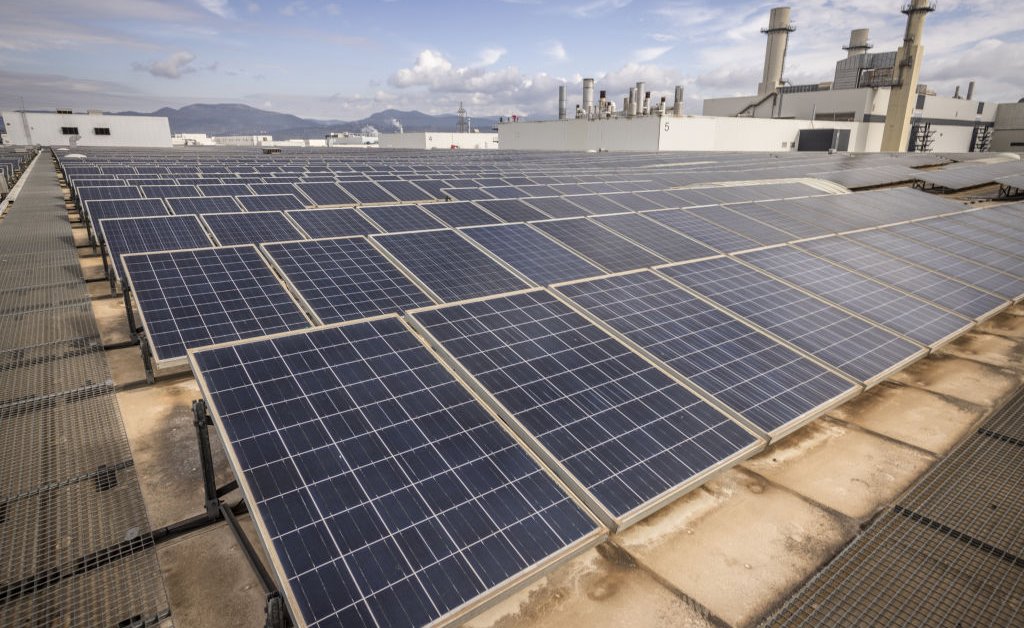AI's Energy Hunger: A Growing Power Crisis?
The rapid advancement of artificial intelligence (AI) is transforming our world, powering everything from self-driving cars to medical diagnoses. But this technological revolution comes at a cost – a significant and growing energy appetite. Is this burgeoning energy consumption poised to spark a power crisis? Let's delve into the issue.
The Power Behind the Algorithm: How Much Energy Does AI Consume?
Training large language models (LLMs) like GPT-3 and sophisticated AI systems requires immense computational power. This translates to substantial energy consumption, often measured in megawatt-hours (MWh). Estimates vary, but training a single advanced AI model can consume millions of kilowatt-hours, equivalent to the annual energy use of hundreds, if not thousands, of households.
- Data Centers: The backbone of AI operations is the data center. These facilities house the powerful servers and infrastructure needed to run AI algorithms, contributing significantly to overall energy consumption. Cooling these data centers alone represents a substantial energy burden.
- Hardware Requirements: The sophisticated hardware required for AI, including specialized GPUs (Graphics Processing Units) and TPUs (Tensor Processing Units), are energy-intensive components. The more complex the AI model, the greater the hardware demands and, consequently, the higher the energy consumption.
- Training vs. Inference: The energy cost of training an AI model is significantly higher than running it (inference). While training is a one-time (or infrequent) event, the continuous use of trained models also contributes to overall energy demands.
The Environmental Impact: AI's Carbon Footprint
The energy consumed by AI translates directly into greenhouse gas emissions. The electricity powering these systems often comes from fossil fuel sources, exacerbating climate change. As AI adoption accelerates, so too will its carbon footprint, unless significant changes are made.
- Sustainable Energy Sources: Transitioning to renewable energy sources like solar and wind power for data centers is crucial to mitigate the environmental impact of AI.
- Energy-Efficient Algorithms: Developing more energy-efficient AI algorithms is another vital step. Researchers are actively exploring methods to optimize computations and reduce energy consumption without sacrificing performance.
- Hardware Advancements: Improvements in hardware design and manufacturing can lead to more energy-efficient GPUs and TPUs.
Is a Power Crisis Imminent? The Challenges and Solutions
While a full-blown power crisis isn't necessarily imminent, the growing energy demands of AI present a significant challenge. The potential for strain on power grids and increased greenhouse gas emissions is undeniable.
- Grid Capacity: The increasing energy demand from AI could strain existing power grids, particularly in regions with limited capacity.
- Resource Scarcity: The production of AI hardware relies on rare earth minerals, raising concerns about resource scarcity and ethical sourcing.
However, proactive measures can mitigate these risks:
- Investment in Renewable Energy: Significant investment in renewable energy infrastructure is needed to power the growing AI industry sustainably.
- Improved Energy Efficiency: Focusing on energy-efficient algorithms, hardware, and data center designs is crucial.
- Policy and Regulation: Government regulations and incentives can encourage sustainable AI practices and responsible energy consumption.
Conclusion: Navigating the Future of AI and Energy
AI offers transformative potential, but its energy hunger is a critical issue demanding immediate attention. Addressing this challenge requires a multi-pronged approach involving technological innovation, policy changes, and a commitment to sustainable practices. Failing to do so risks exacerbating both climate change and potential power shortages. The future of AI is inextricably linked to our ability to power it responsibly. We must strive for a future where AI innovation thrives without compromising our planet's resources.
Keywords: AI, Artificial Intelligence, Energy Consumption, Power Crisis, Data Centers, Renewable Energy, Sustainability, Environmental Impact, Carbon Footprint, Green AI, LLMs, GPT-3, Energy Efficiency, GPU, TPU.

